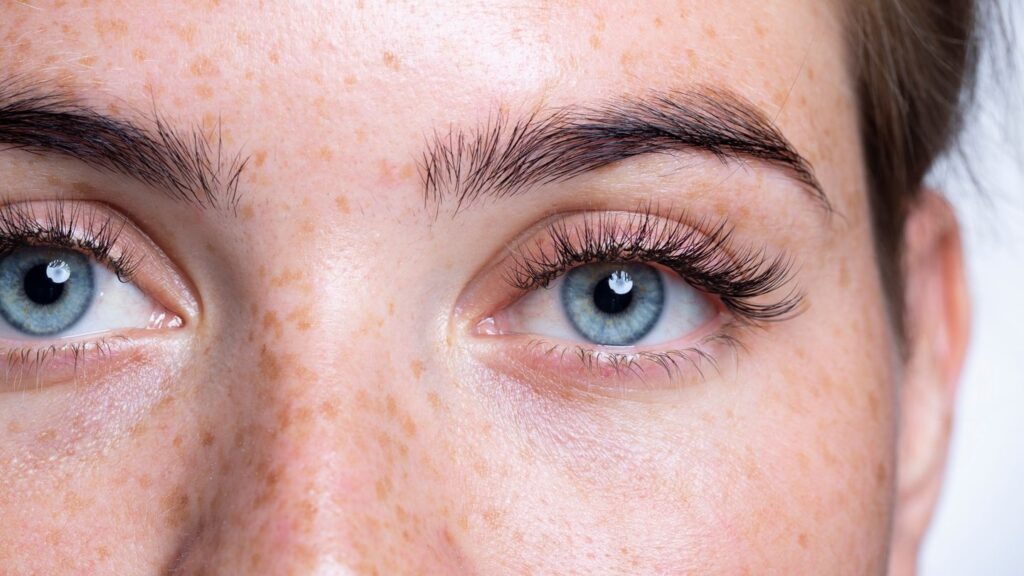When it comes to your eye health, finding the right specialist is crucial. The diagnosis and management of glaucoma require a skilled eye care professional who specializes in this condition. In this article, we will explore the importance of finding a glaucoma specialist and the role they play in providing expert care for your eyes.
Understanding Glaucoma: A Brief Overview
Before we delve into the significance of finding a glaucoma specialist, let’s begin with a brief overview of this condition. Glaucoma is a group of eye diseases that cause damage to the optic nerve, leading to vision loss if left untreated. It is often associated with increased intraocular pressure and can be categorized into several types.
In conclusion, finding a glaucoma specialist is vital for expert care when it comes to managing this complex eye condition. Their specialized training, comprehensive evaluations, and ongoing support are crucial for early detection, accurate diagnosis, and effective treatment of glaucoma. By selecting the right specialist and establishing a long-term relationship, you can ensure the best care for your eyes and maintain optimal eye health.
Glaucoma is often referred to as the “silent thief of sight” because it typically progresses slowly and without noticeable symptoms until significant vision loss has occurred. The optic nerve damage caused by glaucoma is irreversible, making early detection and treatment crucial in preserving vision and preventing blindness.
The Importance of Early Detection
Early detection of glaucoma is critical in preventing irreversible vision loss. Regular eye exams, especially for individuals above the age of 40 or those with a family history of glaucoma, can help identify the condition in its early stages. This is where the expertise of a glaucoma specialist becomes invaluable. Their specialized knowledge and training allow them to detect any signs of glaucoma and initiate appropriate treatment promptly.
Furthermore, early detection not only helps in preserving vision but also reduces the economic burden associated with advanced glaucoma management. By identifying and treating glaucoma early on, patients can avoid the need for costly surgical interventions and long-term care.

Different Types of Glaucoma
There are different types of glaucoma, including open-angle glaucoma, angle-closure glaucoma, and normal-tension glaucoma. Each type requires a tailored treatment approach, and a glaucoma specialist can accurately diagnose the specific type of glaucoma you have and recommend the most effective treatment options.
Open-angle glaucoma, the most common form of the disease, occurs when the drainage angle of the eye becomes less efficient over time, leading to a gradual increase in intraocular pressure. In contrast, angle-closure glaucoma is characterized by a sudden blockage of the drainage angle, causing a rapid and painful increase in eye pressure. Normal-tension glaucoma, on the other hand, is a unique form of the condition where optic nerve damage and visual field loss occur despite normal intraocular pressure levels.
The Role of a Glaucoma Specialist
A glaucoma specialist plays a crucial role in managing and treating glaucoma effectively. However, it’s essential to understand the distinction between a specialist and a general ophthalmologist.
Glaucoma is a group of eye conditions that damage the optic nerve, often due to high pressure within the eye. A glaucoma specialist is a highly trained medical professional who focuses specifically on the diagnosis and treatment of this sight-threatening disease. Their specialized knowledge and skills are instrumental in providing patients with the best possible care to preserve their vision.
Specialist vs. General Ophthalmologist
While a general ophthalmologist can diagnose and treat various eye conditions, a glaucoma specialist has undergone additional training specific to glaucoma. Their expertise lies in the nuanced understanding of this complex disease, which allows for more accurate diagnoses and advanced treatment options.
Glaucoma specialists not only have a deep understanding of the latest advancements in glaucoma management but also have access to cutting-edge technology and treatment modalities. This specialized focus enables them to tailor treatment plans to each patient’s unique needs, ensuring the most effective outcomes.
The Comprehensive Glaucoma Evaluation
One of the key aspects of a glaucoma specialist’s role is conducting a comprehensive evaluation. This assessment includes various diagnostic tests, such as measuring intraocular pressure, examining the optic nerve, and evaluating visual field changes. By conducting a thorough evaluation, a glaucoma specialist can gain insight into the progression of the disease and design a personalized treatment plan.
Additionally, glaucoma specialists work closely with other healthcare providers, such as optometrists and primary care physicians, to ensure holistic care for their patients. They emphasize the importance of regular eye examinations and monitoring to detect any changes in the disease early on, allowing for timely interventions and better outcomes. Collaborating with a multidisciplinary team, including surgeons for advanced cases, is crucial in providing comprehensive care for individuals with glaucoma. Read more about holistic care at https://online.marymount.edu/blog/holistic-care-nursing
Choosing the Right Glaucoma Specialist
Now that we understand the significance of a glaucoma specialist, let’s explore how to choose the right one for your needs.
Glaucoma is a complex eye condition that requires specialized care. When seeking a glaucoma specialist, it’s essential to delve deeper into various factors beyond just their title. Consider their educational background, training, and any additional certifications they may hold in the field of glaucoma management. A specialist with a strong academic foundation and a commitment to ongoing education is more likely to provide comprehensive and up-to-date care.
Factors to Consider When Choosing a Specialist
Several factors should be considered when selecting a glaucoma specialist. These include their experience in treating glaucoma patients, their expertise in the latest treatment options, and their overall reputation within the medical community. It’s also essential to consider their accessibility and proximity to your location, ensuring regular and convenient appointments.
Moreover, evaluating a specialist’s approach to patient care is crucial. Look for a provider who takes a personalized and holistic approach to treatment, considering not just the physical aspects of the condition but also the emotional and psychological impact on the patient. A compassionate specialist who values open communication and patient education can make a significant difference in your glaucoma management journey.
Questions to Ask Your Potential Specialist
When meeting with potential glaucoma specialists, it’s crucial to be prepared with a list of questions. Inquire about their experience, ask how they approach treatment plans, and discuss the potential risks and benefits of different treatment options. Additionally, ask about their communication style and how frequently they monitor patients to ensure ongoing care and support.
Don’t hesitate to inquire about their involvement in research or clinical trials related to glaucoma treatment. A specialist who actively engages in advancing the field through research may offer access to cutting-edge treatments or technologies that could benefit your condition. By asking detailed questions and understanding the full scope of a specialist’s expertise, you can make an informed decision that aligns with your unique needs and preferences.
Preparing for Your First Visit
Preparing for your first visit to a glaucoma specialist can help ensure a smooth and productive appointment. It is important to understand that glaucoma is a complex eye disease that requires specialized care. By taking the time to prepare for your appointment, you are taking a proactive step towards managing your eye health effectively.
Before your visit, it can be helpful to familiarize yourself with the basics of glaucoma, such as how the condition affects the eyes and the potential treatment options available. This knowledge can empower you to ask informed questions during your consultation and better understand the information provided by your specialist.
What to Expect During Your Appointment
During your first visit, the glaucoma specialist will conduct a comprehensive examination. They may perform additional tests to evaluate your eye health and determine the severity of your glaucoma. It’s essential to be prepared for these tests and committed to following their recommended treatment plan. The examination may include measuring your eye pressure, assessing your peripheral vision, and examining the optic nerve for any signs of damage. Click here to learn more about pressure.
Additionally, the specialist may discuss the various treatment options available for managing glaucoma, which can range from prescription eye drops to surgical interventions. Understanding these options and their potential side effects can help you make informed decisions about your eye care.
How to Prepare for Your Consultation
Prior to your appointment, compile a list of medications you are currently taking and any concerns or questions you may have. Bringing along any previous eye test results or medical records may also be beneficial. Remember, open and honest communication with your specialist is key to receiving the best care possible. Don’t hesitate to discuss any lifestyle factors that may impact your eye health, such as smoking or a family history of glaucoma.
By actively participating in your eye care and maintaining regular follow-up appointments, you can work towards preserving your vision and managing glaucoma effectively. Your partnership with your glaucoma specialist is crucial in navigating this condition and ensuring the best possible outcomes for your eye health.

The Long-Term Relationship with Your Specialist
Establishing a long-term relationship with your glaucoma specialist is vital for ongoing care and management. This relationship goes beyond just medical appointments; it involves trust, open communication, and a shared commitment to preserving your eye health for the long term.
When you have a long-term relationship with your glaucoma specialist, they become familiar with your medical history, lifestyle, and personal preferences. This deep understanding allows them to provide personalized care that takes into account all aspects of your health and well-being.
Regular Check-ups and Monitoring
Glaucoma is a chronic condition that requires regular check-ups and monitoring. Your glaucoma specialist will determine the appropriate frequency of these visits based on your specific needs. These appointments are essential for tracking the progression of the disease, adjusting treatment plans, and ensuring that your eyes remain healthy.
During these check-ups, your specialist will not only assess your eye pressure and visual field but also take the time to discuss any changes in your symptoms, lifestyle, or overall health. This comprehensive approach ensures that any developments in your condition are promptly addressed, and adjustments to your treatment plan can be made as needed.
The Importance of Communication and Trust
Building a strong relationship with your glaucoma specialist is based on effective communication and trust. It’s essential to openly discuss any questions, concerns, or changes in your condition. Clear communication will ensure that you receive the best possible care and that your specialist can tailor treatments to address your individual needs.
Moreover, trust is a fundamental aspect of the patient-specialist relationship. Trusting your specialist’s expertise and guidance can alleviate anxiety and empower you to take an active role in managing your glaucoma. This mutual trust forms the foundation of a successful long-term partnership focused on preserving your vision and quality of life.
Read about cost at: How Much Does Glaucoma Surgery Cost in Australia

